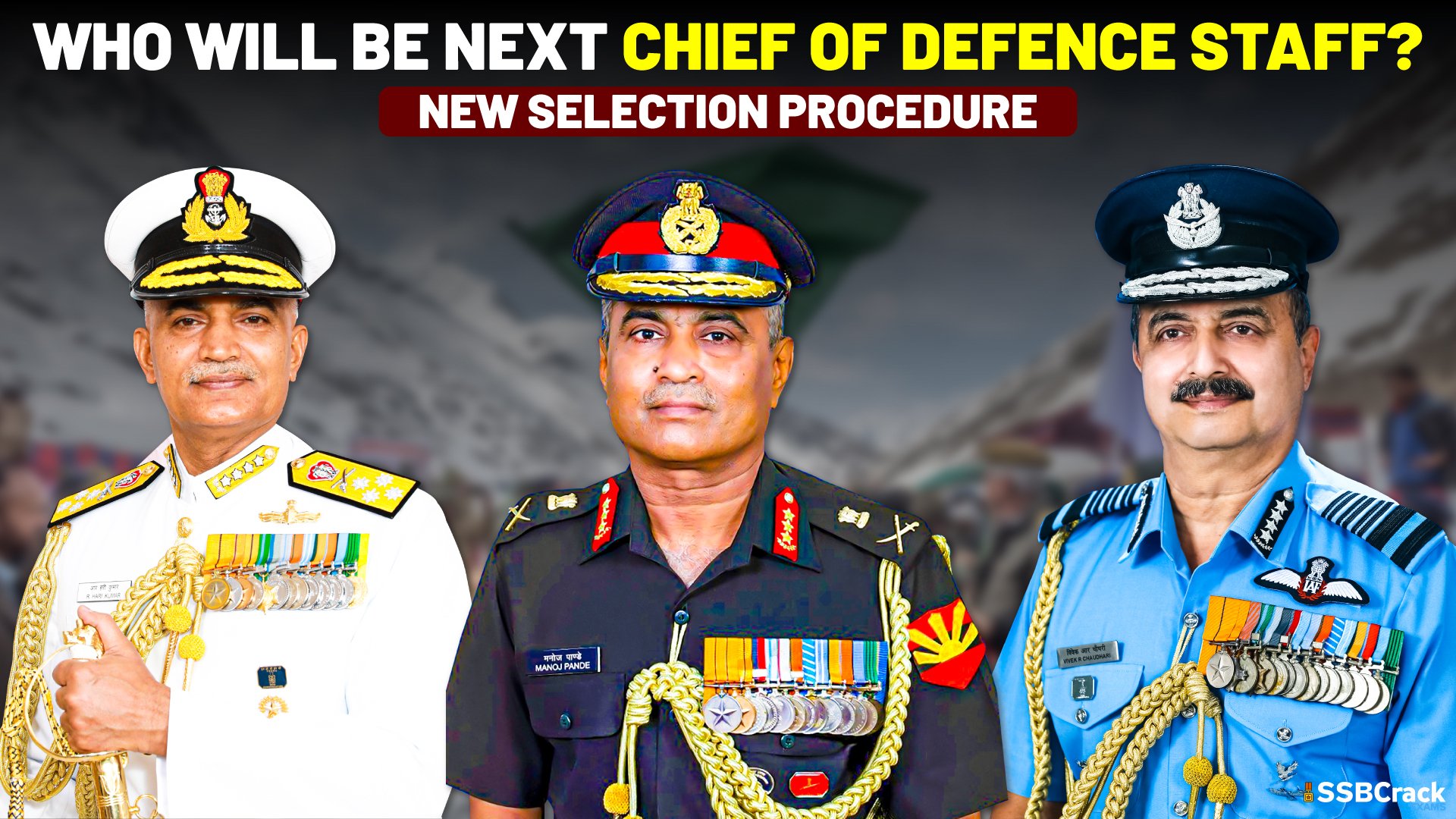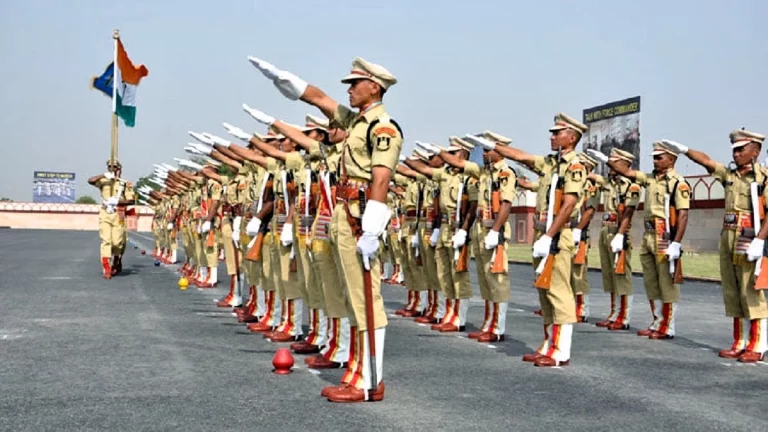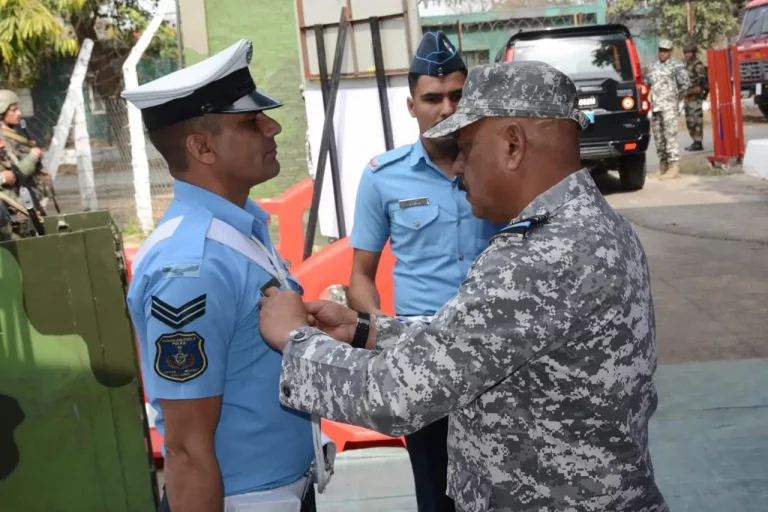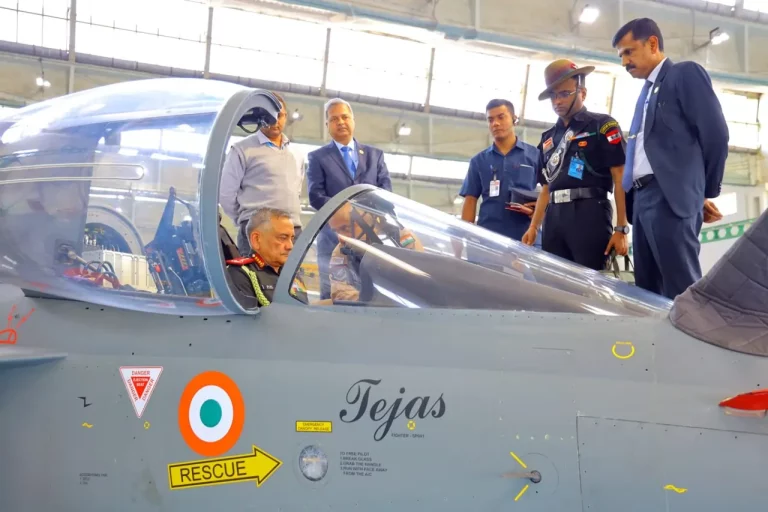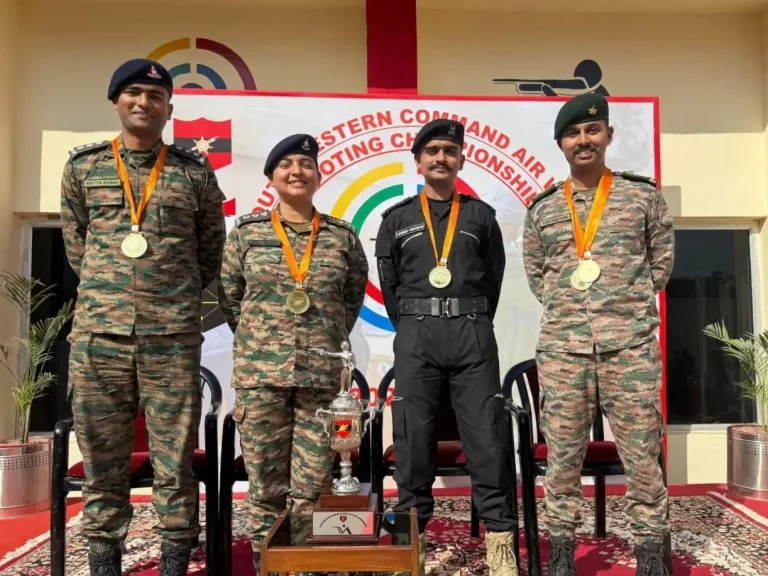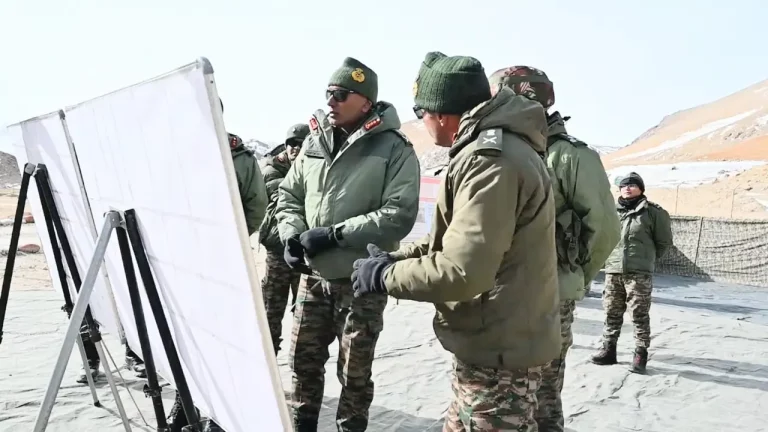The Defence Ministry today issued new guidelines broadening the scope of eligible officers for the post of the Chief Of Defence Staff (CDS) of the Indian armed forces. Any serving or retired Lieutenant General, Air Marshal and Vice Admiral under the age of 62 years will be eligible for the post of Chief of Defence Staff. This essentially opens the doors for the second-highest active rank officers of the tri-services to possibly supersede their seniors — the chief of the army, air force, or navy — to take on the role and widens the pool from which a CDS can be appointed.
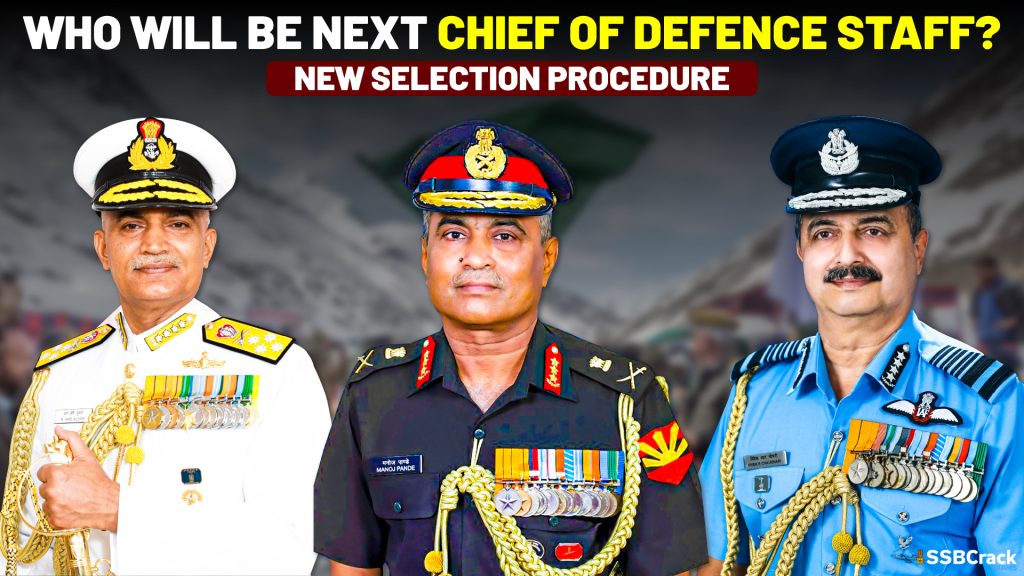
Six months after the death of the country’s first Chief of Defence Staff General Bipin Rawat, the Centre has initiated steps toward appointing his successor as it amended the acts of three services to include retired officers in the pool of officers to be considered for the highest defence forces’ appointment.
News Agencies had reported on April 17 that both serving and retired officers would be considered for the appointment for the next CDS and in line with that, the Ministry of Defence on June 6 issued three separate gazette notifications to amend regulations of three defence forces related to the appointment of Chief of Defence Staff.
Changes In the Selection Procedure For Chief Of Defence Staff (CDS)
Any serving or retired Lt General, Air Marshal and Vice Admiral under the age of 62 years will be eligible for the post of Chief of Defence Staff, according to notifications brought out by the government.
The officers can be considered for the top post along with serving chiefs of the Army, Navy and the Indian Air Force, according to the amended rules which are aimed at widening the pool from which CDS can be appointed.
The post of Chief of Defence Staff has been lying vacant since the death of Gen Bipin Rawat in a helicopter crash on December 8.
The government has issued separate notifications on Monday as part of the Air Force Act, the Army Act and the Navy Act to make the provisions to make any serving or retired Lt General, Air Marshal or Vice Admiral eligible to be appointed as the CDS.
“The Central Government may, if considered necessary, in the public interest, so to do, appoint as Chief of Defence Staff, an officer who is serving as Air Marshal or Air Chief Marshal or an officer who has retired in the rank of Air Marshal or Air Chief Marshal but has not attained the age of 62 years on the date of his appointment,” the notification issued under the Air Force Act 1950 said.
It further said that the government may extend the service of the Chief of Defence Staff for such a period as it may deem necessary subject to a maximum age of 65 years.
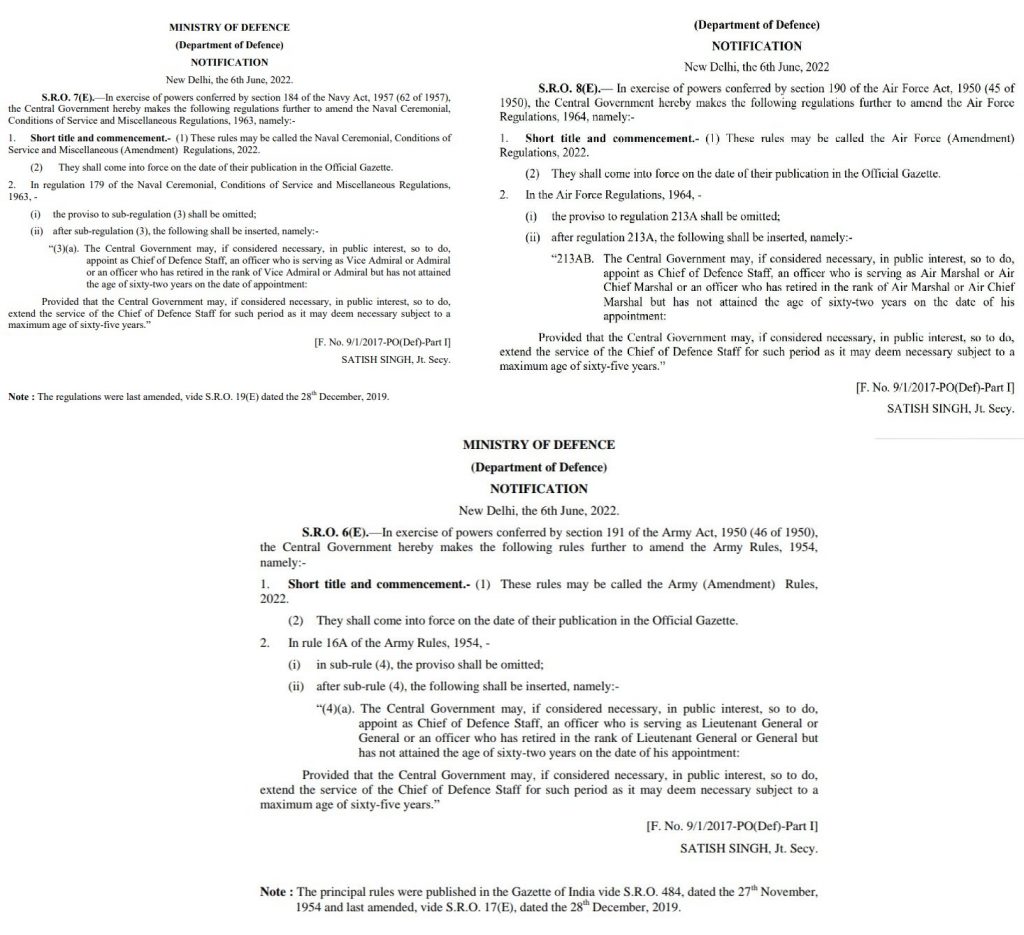
Identical notifications were issued under the Army Act 1950 and the Navy Act 1957.
The tenure of three service chiefs is three years of service or when they turn 62, whichever is earlier.
In effect, the retired Chiefs of the Army, the Navy and the Air Force are unlikely to be considered for the post of the CDS as the age to become eligible for the post has been put at 62 years.
All About Chief of Defence Staff
Introduction:
Hon’ble Prime Minister Shri Narendra Modi announced the Government’s intention to create the post of Chief of Defence Staff during his address to the Nation on 15th August 2019.
In a landmark decision with tremendous reform in higher defence management in the country, the Union Cabinet chaired by Prime Minister Narendra Modi has approved to create the post of Chief of Defence Staff in the rank of a four-star General with salary and perquisites equivalent to a Service Chief. The Chief of Defence Staff will also head the Department of Military Affairs (DMA), to be created within the Ministry of Defence and function as its Secretary.
History:
- In 1999, the Kargil Review Committee headed by Shri K Subrahmanyam, had recommended a review of the National Security Framework for improved decision-making on defence matters. The Committee also suggested that the mechanisms and interface between the Defence Ministry and the Service Headquarters should be thoroughly studied and reorganised.
- Based on the K Subrahmanyam Committee Report, a Group of Ministers (GoM) in 2001 recommended creation of the post of Chief of Defence Staff.
- Many major countries of the world have created the post of the Chief of Defence Staff to bring more jointness and integration in their Armed Forces. These include Italy, France, China, UK, USA, Canada and Japan. Despite these examples, no consensus could be reached within India in this regard.
- Under the leadership of Prime Minister NarendraModi, this transformative reform was realised and brought to action.
Purpose:
- To achieve better results at all levels through effective coordination between the Armed Forces and the Civil Services. This would helpfacilitate inter-service integration and better civilian-military coordinationin the Nation’s Higher Defence Organisation.
- To strengthen the process of Joint Planning, Operations and Procurement, thereby making Armed Forces more effective and efficient.
Reforms Undertaken:
- The Cabinet Committee on Security took the historic decision on 24th December, 2019 to create the post of the Chief of Defence Staff (CDS) to enhance the quality of military advice to political leadership through integration of service inputs.
- Former Chief of the Army Staff, General BipinRawat was appointed as the country’s first Chief of Defence Staff on 31st December 2019.
- The creation of the ‘Department of Military Affairs’ (DMA) in the Ministry of Defence and the appointment of the Chief of Defence Staff as the Permanent Chairman of the Chiefs of Staff Committee (COSC) as well as the Secretary of the Department of Military Affairs, is the most significant and important reform in the Higher Defence Organisation.
- For smooth transition, 159 personnel from the Department of Defence were transferred to the newly created Department of Military Affairs.
- To provide Subject Matter Expertise, Officers from the three Armed Forces werealso appointed at the Department of Military Affairs. These include one Additional Secretary, three Joint Secretaries and several Directors/ Deputy Secretaries.
- On January 1 2020, Gen Rawat took charge as India’s first CDS with a mandate to bring convergence in the functioning of the Army, the Navy and the Indian Air Force and bolster the country’s overall military prowess.
- Another key mandate of the CDS was to facilitate the restructuring of military commands for optimal utilisation of resources by bringing about jointness in operations, including through the establishment of theatre commands.
- A high-level committee set up to examine the gaps in India’s security system in the wake of the Kargil war in 1999 had recommended the appointment of the CDS as a single-point military adviser to the defence minister.
Outcomes:
- Under the DMA, three Joint Services Study Groups (JSSG) are developing common logistic policies for Services that will enhance all supply chain functions such as planning, procurement, inventory-maintenance, distribution, disposal and documentation.
- A pilot project based on the establishment of three Joint Logistic Nodes (JLN) at Mumbai, Guwahati and Port Blair has already been rolled out.
- Three Joint Doctrines have been formulated in the last one year, while four new joint doctrines namely Capstone, Space, Cyber and Intelligence Surveillance and Reconnaissance (ISR) are at an advanced stage.
- In order to enhance Combat Capability and balance defence expenditure, more than 270 logistic installations of the Indian Army have been closed or scaled down, resulting in substantial savings to the exchequer, besides increasing the ‘Teeth to Tail’ ratio.
- A holistic review of the training methodology is also underway to modernise, integrate and rationalise training, as also to ensure optimal utilisation of infrastructure and resources.
- The Department of Military Affairs released the first Positive Indigenisation List of 101 items in August 2020 and the Second Positive Indigenisation List comprising 108 items on 31st May 2021. These lists include major Combat Platforms, advanced Weapon Systems, Armament and Ammunition.
- A ‘Tri–Services Joint Working Group’ has also been set up to study and work out the nuances of integrating Communication Networks between the Services.
- The CDS and DMA are striving to promote integration of the three services (Army, Air Force, and Navy) through joint planning for best use of military capabilities.
- The appointment of the CDS by the Narendra Modi government within six months of coming back to power in 2019 has been hailed as one of the biggest reforms in the higher military structure of the country.
- The CDS office and the theatre command planned to be created and put under its command are expected to make it the strongest ever military office in the country with all fighting formations reporting directly to it.
- The CDS was appointed as the Secretary of the Department of Military Affairs which functions at present under an Additional Secretary-rank Lieutenant General.
- The CDS is also the head of the Integrated Defence Staff presently headed by a three-star officer from the Indian Air Force.
- The government has also made the CDS in-charge of the Make in India in defence programme and has been given the mandate of promoting and ensuring the Aatmanirbhar Bharat scheme in the defence sector.
- General Rawat used to devote a majority of his time to promote self-reliance in defence and was also responsible for bringing out the positive list of indigenisation which listed items being put in the import ban lost to promote job creation within the country.
The following areas will be dealt by the Department of Military Affairs headed by CDS:
- The Armed Forces of the Union, namely, the Army, the Navy and the Air Force.
- Integrated Headquarters of the Ministry of Defence comprising Army Headquarters, Naval Headquarters, Air Headquarters and Defence Staff Headquarters.
- The Territorial Army.
- Works relating to the Army, the Navy and the Air Force.
- Procurement exclusive to the Services except capital acquisitions, as per prevalent rules and procedures.
Apart from the above, the mandate of the Department of Military Affairs will include the following areas:
- Promoting jointness in procurement, training and staffing for the Services through joint planning and integration of their requirements.
- Facilitation of restructuring of Military Commands for optimal utilisation of resources by bringing about jointness in operations, including through establishment of joint/theatre commands.
- Promoting use of indigenous equipment by the Services.
- The Chief of Defence Staff, apart from being the head of the Department of Military Affairs, will also be the Permanent Chairman of the Chiefs of Staff Committee. He will act as the Principal Military Adviser to Raksha Mantri on all tri-Services matters. The three Chiefs will continue to advise RM on matters exclusively concerning their respective Services. CDS will not exercise any military command, including over the three Service Chiefs, so as to be able to provide impartial advice to the political leadership.
As the Permanent Chairman of Chiefs of Staff Committee, CDS will perform the following functions:
- CDS will administer tri-services organisations. Tri-service agencies/organisations/commands related to Cyber and Space will be under the command of the CDS.
- CDS will be member of Defence Acquisition Council chaired by Raksha Mantri and Defence Planning Committee chaired by NSA.
- Function as the Military Adviser to the Nuclear Command Authority.
- Bring about jointness in operation, logistics, transport, training, support services, communications, repairs and maintenance, etc of the three Services, within three years of the first CDS assuming office.
- Ensure optimal utilisation of infrastructure and rationalise it through jointness among the services.
- Implement Five-Year Defence Capital Acquisition Plan (DCAP), and Two-Year roll-on Annual Acquisition Plans (AAP), as a follow up of Integrated Capability Development Plan (ICDP).
- Assign inter-Services prioritisation to capital acquisition proposals based on the anticipated budget.
- Bring about reforms in the functioning of three Services aimed at augmenting combat capabilities of the Armed Forces by reducing wasteful expenditure.
- It is expected that this reform in the Higher Defence Management would enable the Armed Forces to implement coordinated defence doctrines and procedures and go a long way in fostering jointmanship among the three Services. The country would be benefitted by coordinated action on greater jointmanship in training, logistics and operations as well as for prioritisation of procurements.
The CDS is also the single point of contact for the government for giving military advice and is the senior-most bureaucrat in the defence ministry which has four major departments.
To crack the SSB interview, You can join our SSB interview live classes batch and we recommend you to Enroll SSB INTERVIEW ONLINE COURSE. Trusted by thousands of defence aspirants.
